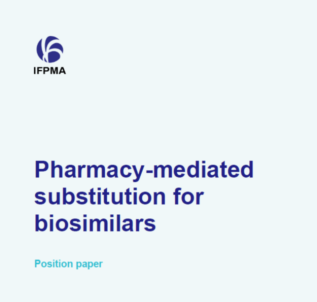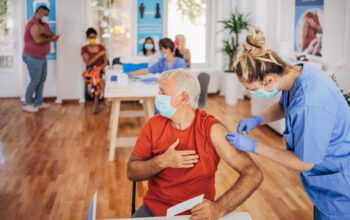
On 17 February 2025, IFPMA delivered a statement during the 13th Intergovernmental Negotiating Body (INB 13).
Read moreWhat is an HTA and how is it used? Health technology assessment (HTA) is a multidisciplinary process that uses explicit methods to determine the value of a health technology at different points in its lifecycle. The purpose is to inform decision-making in order to promote an equitable, efficient, and high-quality health system. An HTA agency...
Read more
On 8 February 2025 at the EB156 in Geneva, the International Federation of Pharmaceutical Manufacturers & Associations (IFPMA), Global Diagnostic Imaging, Healthcare IT & Radiation Therapy Trade Association (DITTA), Global Self-Care Federation (GSCF), and International Hospital Federation (IHF) delivered a statement on Agenda Item 22: Climate change and health.
Read moreOn 7 February 2025 at the EB156 in Geneva, the Fight the Fakes Alliance delivered a statement on substandard and falsified medical products. IFPMA is a member of Fight the Fakes Alliance.
Read moreOn 6 February at the EB156, the International Federation of Pharmaceutical Manufacturers & Associations (IFPMA), Global Diagnostic Imaging, Healthcare IT & Radiation Therapy Trade Association (DITTA), Global Self-Care Federation (GSCF), International Pharmaceutical Federation (FIP), International Alliance of Patients’ Organizations (IAPO), and International Generic and Biosimilar Medicines Association (IGBA) delivered a statement on Agenda Item 15: WHO’s work in health emergencies.
Read moreOn 5 February at the EB156 in Geneva, IFPMA delivered a statement on non-communicable diseases (NCDs).
Read morePharmacy-mediated substitution is a framework permitting substitution of medicines at the retail pharmacy without the consent of the prescribing physician. In this paper, IFPMA outlines a set of principles that can guide pharmacy-mediated substitution. While the principles are intended for the awareness of pharmacists, they can also relate to other healthcare providers, regulators, payers, and those involved in formulary and procurement decision-making.
Read more
An aging population, the rise of antimicrobial resistance, and the ongoing threat of infectious and chronic diseases are placing immense pressure on our societies. In this context, a paradigm shift from healthcare systems that focus on treating people when they are sick, to a prevention approach is a necessity to guarantee the efficiency and long-term...
Read more
This blog highliths that a lifelong vaccination approach can be a critical tool to reduce the strain on healthcare systems, protect vulnerable populations, and support economic stability.
Read more
IFPMA worked with Clarivate to study how different countries regulate post-approval changes (PACs) in biotherapeutic products. The research compared PACs guidelines across 21 countries and regions in Latin America (LATAM), Asia-Pacific (APAC), and the Middle East and Africa (MEA) to the World Health Organization (WHO) Guidelines on changes on biotherapeutic products. The findings reveal significant diversity in the level of convergence among countries and with the WHO Reference Guidelines, with a few notable trends.
Read more
Today, 4.5 billion people do not have access to essential health services, which span promotion, prevention, treatment, rehabilitation, and palliative care. Health equity and timely access to innovation, especially for vulnerable populations, is a priority to all actors in the health sector, from companies that innovate to governments that seek to bring health services to...
Read more
Vaccines have long been our greatest defence in public health. As we confront new global challenges, the latest vaccine technology is central to a preventative approach to healthcare. Over the past five decades, vaccines have saved at least 154 million lives, according to the World Health Organization. Diseases like smallpox have been eradicated, and polio...
Read more